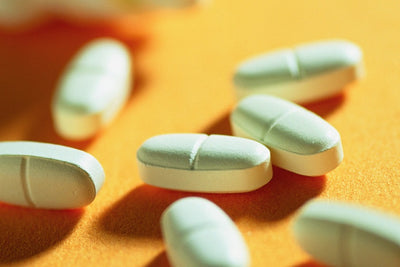
Dangers of Opioid Medicines
Debra Murray
What are Opioids?
How do they work?
The body has its own supply of endorphins which bind to opiate receptors in the brain. Endorphins reduce physical and mental stress and our perception of pain. Upon taking opioids, the drug components will attach to these receptors, inducing a more powerful response than the endorphins we’re used to. This is the euphoric high that some people feel as their aches disappear with the rush of sedation. The muscles relax and the respiratory system is repressed, slowing breathing. As a side effect, drowsiness ensues, making it difficult to do everyday activities. Confusion is another inconvenient side effect, as well as constipation and nausea. While those side effects may be manageable, one of the biggest problems lies in the long-term use of such medications.
What are the dangers?
The most worrying danger of opioid usage is addiction. Many people underestimate the possibility of becoming addicted to a doctor-prescribed treatment, but over 2 million Americans struggle with prescription medication addiction. Addiction first begins with tolerance as the patient will eventually get used to the effects of the initial dosage, requiring more of the drug to feel the same relief. Because the brain adapts to chemical changes, a person may become physically dependent on the drug. Furthermore, attempting to discontinue abruptly is extremely dangerous, according to the FDA, as it will incite severe withdrawal effects, physical and mental distress, and suicidal thoughts. People using these serious drugs for a long period of time should talk to a doctor to begin slowly tapering off usage, but even then, they might experience sweating, chills, restlessness, and muscle aches.
The possibility of opioid misuse is another hazard. Accidentally ingesting more than the proper dosage can reduce breathing to the point of limiting the amount of oxygen reaching the brain. Without emergency intervention, breathing may stop, possibly leading to brain damage or a coma. Interactions with other substances is also important to watch out for, especially with alcohol, a downer that will further depress the respiratory system.
What are other options for pain relief?
When you have intense, chronic agony, medication isn't your only option. Pain is different for every person, and in some circumstances the extreme effects of a powerful opioid drug may be the best option for short-term use, but you need to know your own body and the pain you experience, as well as the best and safest way to manage that pain. A myriad of natural pain relief methods exist that shouldn't be written off. There are treatments like acupuncture, massage therapy, physical therapy, and chiropractic therapy. You can try herbs like fever few, turmeric, ginseng, and valerian root for anything from migraines to muscle cramps. Some over-the-counter pain relief creams, such as Super Blue Stuff OTC by BLUESPRING, contain these herbs and can be a convenient and safe way to utilize them. Finally, never underestimate the positive effects of natural pain relief from exercise and eating nutritiously. While prescription medicine has many risks, sometimes more than it has advantages, natural treatments are relatively harmless, so you have nothing to lose.
https://www.therecoveryvillage.com/opiate-addiction/exploring-why-opiates-make-you-feel-good/
https://www.drugabuse.gov/publications/drugfacts/prescription-opioids
https://drugabuse.com/opiate-alternatives-doctors-got-a-brand-new-bag/
https://www.goodrx.com/blog/non-opioid-options-pain-relief-how-to-choose/
https://www.opiate.com/opiates/opiates-list/
https://www.fda.gov/downloads/Drugs/DrugSafety/UCM635492.pdf


 {{/image.src}}
{{/image.src}}





